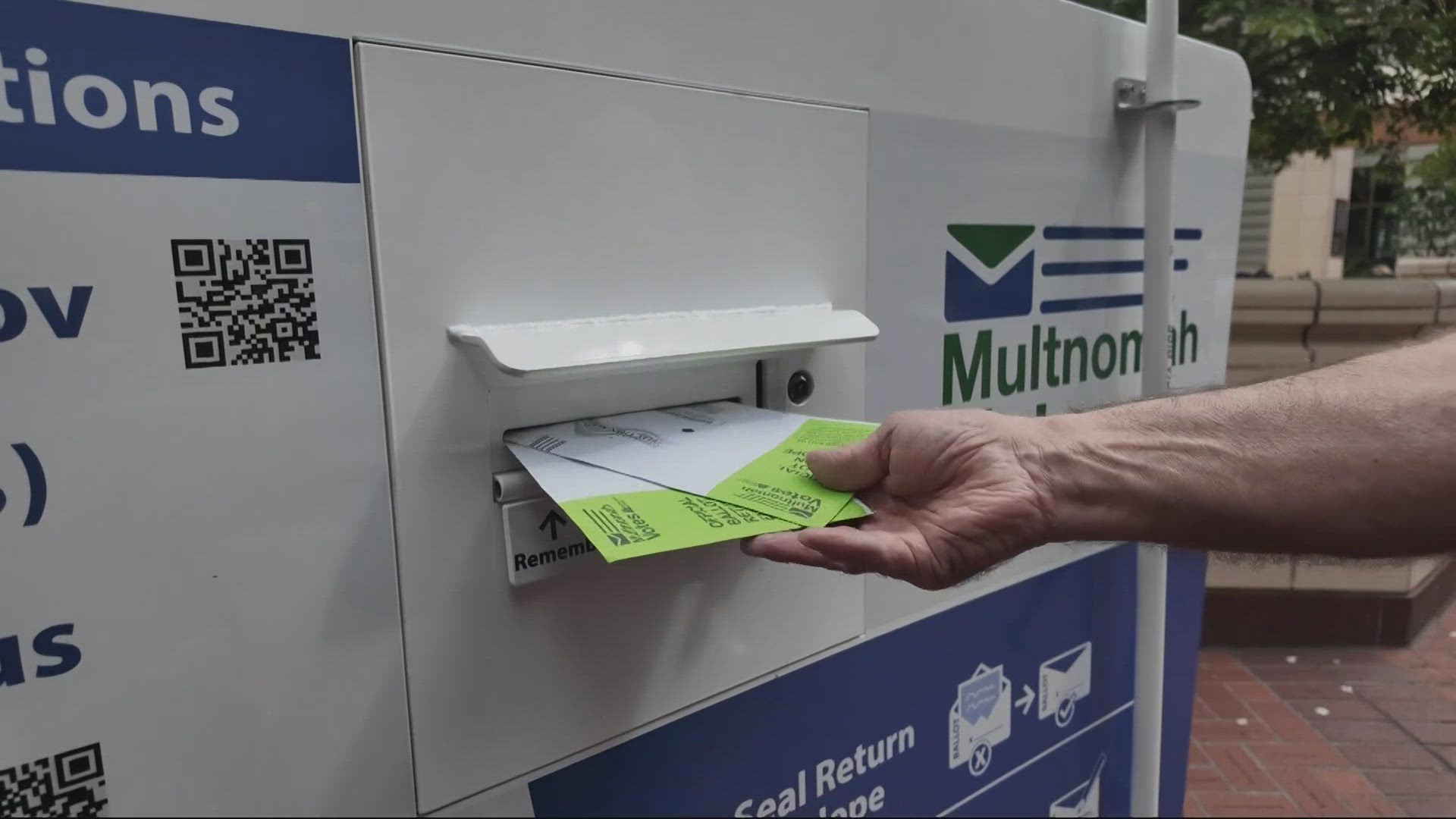PORTLAND, Ore. — Measure 117 would implement statewide ranked choice voting for state and federal elections in Oregon. It would allow voters the option to rank candidates in order of preference, from favorite to least favorite.
This voting method is already implemented in Portland, which is how voters will vote in the city wide elections this November.
Supporters of Measure 117 believe it will improve the current voting system, but others argue it might not do all that supporters hope it will.
“What it does is it just in each step of the count, only looks at the top non-eliminated choice on each ballot, and kicks out the one that had the least top choices on the ballots, and moves on to the next step," said Mark Frohnmayer, founder of the nonprofit Equal Vote Coalition. The group opposes the measure.
"Imagine a four candidate race in RCV, where there's approximately equal support for all of the candidates as the first choice, like 26 (percent), 25, 25, 24, but that 24 candidate is the 100 percent consensus second choice of all the other voters. Seventy-six percent of the voters will not have their second choice counted at all in that election, no matter who wins," Frohnmayer said.
He said ranked choice voting allows voters to express their preference in order, but does not count every preference.
With more competitive races with more than two candidates, Frohnmayer said the method falls apart.
"What I'm looking for as a voter and as a voting reform advocate are durable, truly fair reforms. And I think, unfortunately, this one falls short of that goal," he said.
But supporters said it gives voters more opportunities to see who they want in office. And those frustrated with the current voting system said they believe it's a move in the right direction.
"I’m super frustrated by it because you have to vote strategically many times ... you can’t vote your conscience, or who you favor, because you’re more concerned about another person winning, or you just don’t think that the candidate you like might win," said James Carroll, who was out canvassing for Measure 117 on Saturday.
"I think it’s a really good quality initiative and it’s a unique opportunity for us to get this passed here in Oregon," Carroll said.
"You feel like you have to vote for those candidates, when in reality, there could be someone else that shares your values, your perspective, cares about the issues that you do and so with Measure 117, it's really opening up voters to vote in the way that feels the most genuine to them," said Sol Mora, who was also out canvassing. Mora works with a nonprofit called Oregon Ranked Choice Voting Advocates.
Those in favor of ranked choice voting have made the argument that since the winning candidate has received over 50% of the vote, it ensures the winner is supported by the majority of voters, even if they were not the first choice on the ballot.
"The more choices they have on their ballot, the more satisfaction they’ll ultimately have with the candidate that wins," Mora said.
If passed, the measure would be implemented statewide in 2028.
"If it passes, I think that we should all encourage the legislature to actually implement a fair count as part of this process. And if it doesn't pass, then I would likewise encourage folks who are interested in the topic to stay engaged and keep pushing," Frohnmayer said.

